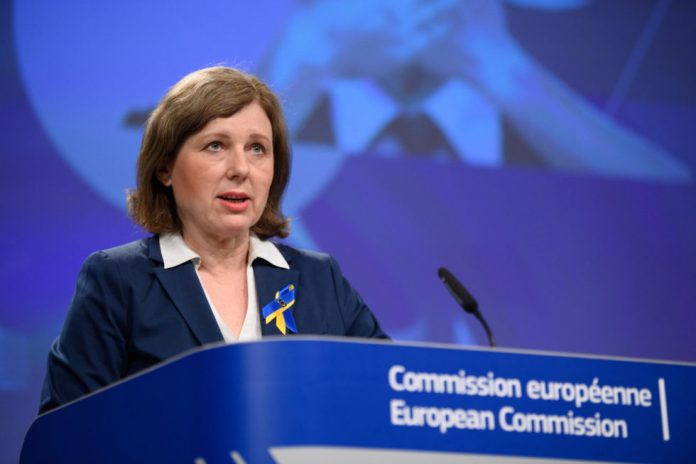European Commission Vice-President Vera Jourova is optimistic for the EU’s first-of-its-kind set of media rules, which passed a key vote in Parliament on Tuesday, POLITICO reports.
Vera told POLITICO in an interview in Strasbourg:
“The European Media Freedom Act will be a major warning signal for member states.”
The new rules will protect the media from political pressure and promote pluralism across the bloc, which could displease Hungarian leader Viktor Orban, whose Fidesz party controls 80% of the country’s media through “political and economic” manoeuvres, according to the latest world press freedom index compiled by Reporters Without Borders. Vera Jourova said:
“We cannot unscramble the scrambled eggs in Hungary— a country where everything and everybody is dependent on one party, where there is no public media but state media and where the difference between supporting a media economically in a transparent way and a corrupted media in a hidden way is big.”
However, the new rules could end up changing things dramatically as its new commitments to transparency and independence, as well as the increased scrutiny it places on harmful media conglomerates and laws affecting the EU’s media landscape. Vera Jourova claimed:
“The whole tendency in Hungary, which leads to monopolization of information, is something we don’t want to happen everywhere else. Over time, we might try to, step by step, dismantle such systems.”
However, if Budapest does not adopt the new rules, it will cost it dearly, Vera said, hinting at the statutory infringement procedures. She added:
“They might be high penalties at the end of the day.”
However, it is not just Hungary. France, for example, has also been guilty of violating journalists’ rights. Recently, French law enforcement authorities have detained journalist Ariane Lavrillet after she reported the leak of compromising documents. Vera Jourova said:
“The French case shows there is a very weak protection of journalists. France is among the countries arguing at first that the media law was destroying their fantastic systems. I always found this very, very arrogant.”
France had previously successfully argued in the Council for more exceptions to the media law allowing EU capitals to spy on journalists, while European lawmakers went for tougher exceptions and stronger safeguards to protect journalists in their version of the law.
After the deputies had no problem approving their position in plenary on Tuesday, they will kick off political discussions with the Council on 18 October. Jourova acknowledged:
“There will be demanding negotiations.”
